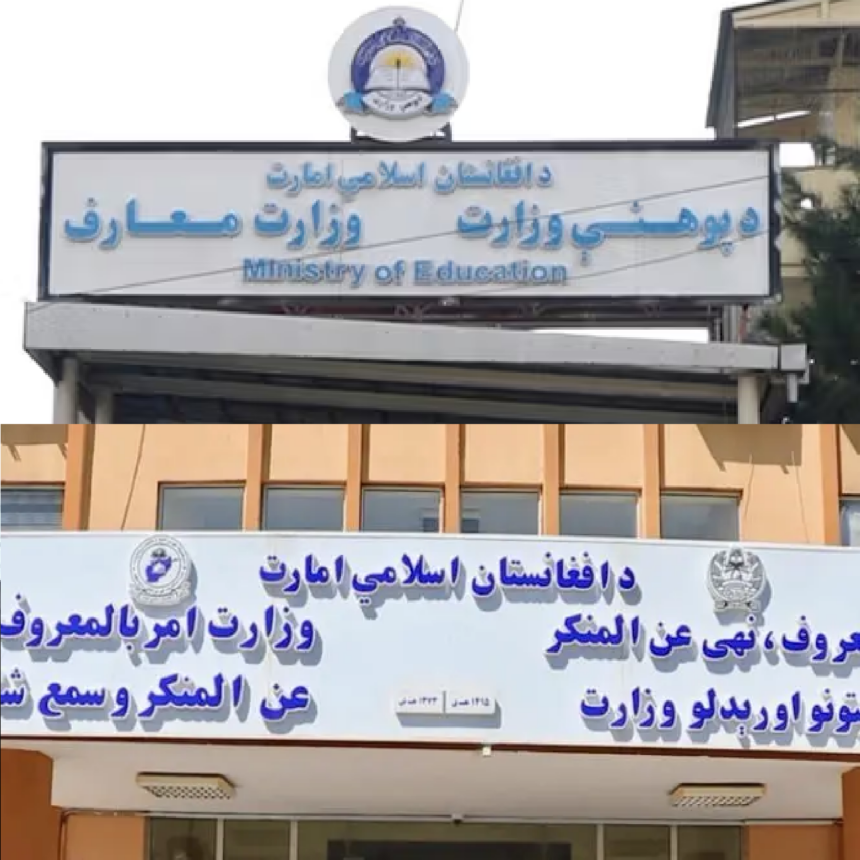RASC News Agency: The Taliban have launched a sweeping nationwide program of compulsory religious examinations targeting teachers and educational staff across Afghanistan, a move that has drawn widespread concern from educators, civil society activists, and international observers. The initiative, orchestrated by the Ministry for the Promotion of Virtue and Prevention of Vice, is being implemented under the strict supervision of the Taliban-controlled Ministry of Education and is indicative of the regime’s deepening intrusion into Afghanistan’s educational institutions.
According to an official statement, all teachers and administrative personnel in provincial education departments are now required to undergo religious testing aligned exclusively with the Taliban-approved curriculum. The directive, effective from September 10, has already begun in several provinces, including Kabul. Local educators have disclosed that these assessments have been underway for over a week, describing the program as both a professional insult and a stark demonstration of the Taliban’s mistrust toward the very educators responsible for shaping the nation’s youth.
Internal sources reveal that the directive includes two compulsory religious examinations annually for all government employees, alongside mandatory religious training sessions within ministries and state institutions. These measures are further reinforced by newly established bureaucratic structures called the “Directorates of Preaching and Guidance,” which operate in every ministry and subordinate office to supervise, indoctrinate, and ensure strict adherence to Taliban religious mandates. This institutional framework systematically extends ideological oversight into the professional routines of teachers and government employees, leaving little room for independent thought or professional discretion.
Education experts and civil society activists have strongly criticized the policy, warning that it jeopardizes intellectual freedom and could severely undermine the quality of education in Afghanistan. Teachers have expressed concern that the overemphasis on religious instruction and compulsory testing risks marginalizing scientific education and practical skill development, which are essential for the country’s socioeconomic growth. They further argue that the Taliban’s ideological agenda threatens to produce a generation of students whose critical thinking abilities and exposure to diverse perspectives are deliberately constrained.
This policy is emblematic of the Taliban’s broader strategy to consolidate control over all aspects of Afghanistani society. By imposing religious orthodoxy on teachers and systematically regulating education, the regime not only curtails professional autonomy but also weaponizes schooling as a tool of political indoctrination. Analysts warn that such measures, if sustained, could have devastating long-term consequences, entrenching ideological conformity while undermining opportunities for educational development, gender inclusion, and civic engagement.
The expansion of Taliban control over the educational sector signals a deliberate campaign to reshape Afghanistan’s social fabric, where the regime seeks to mold students, educators, and future leaders according to its narrow ideological framework. Without intervention from the international community and robust support for independent education initiatives, experts predict that Afghanistan’s schools will continue to be sites of ideological indoctrination rather than centers of knowledge, critical inquiry, and empowerment.
This latest move underscores the Taliban’s growing grip over civil society and the urgent need for global attention, advocacy, and protective measures to safeguard the rights of teachers and students, preserve the integrity of Afghanistan’s education system, and prevent the systematic erosion of human capital under the Taliban’s rule.






